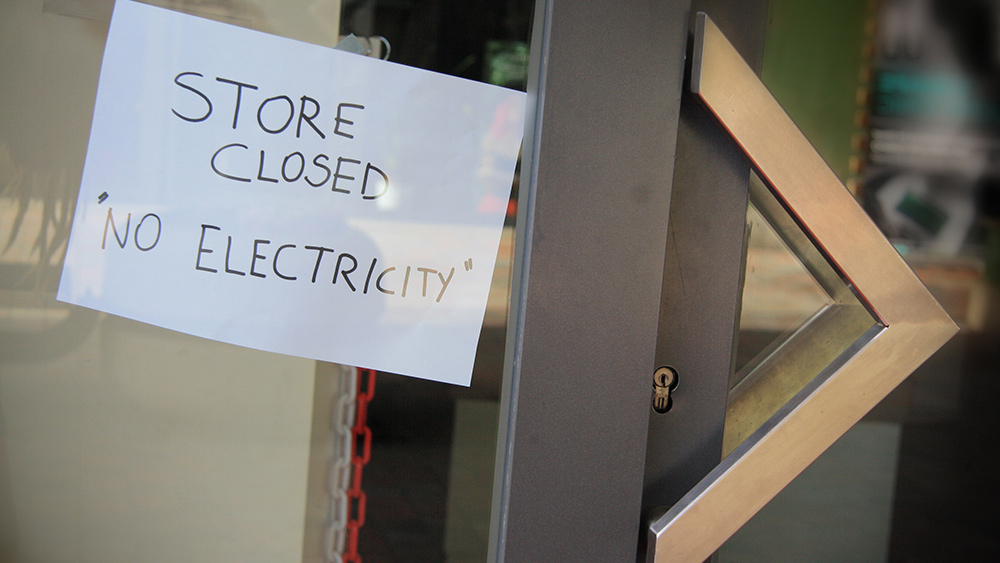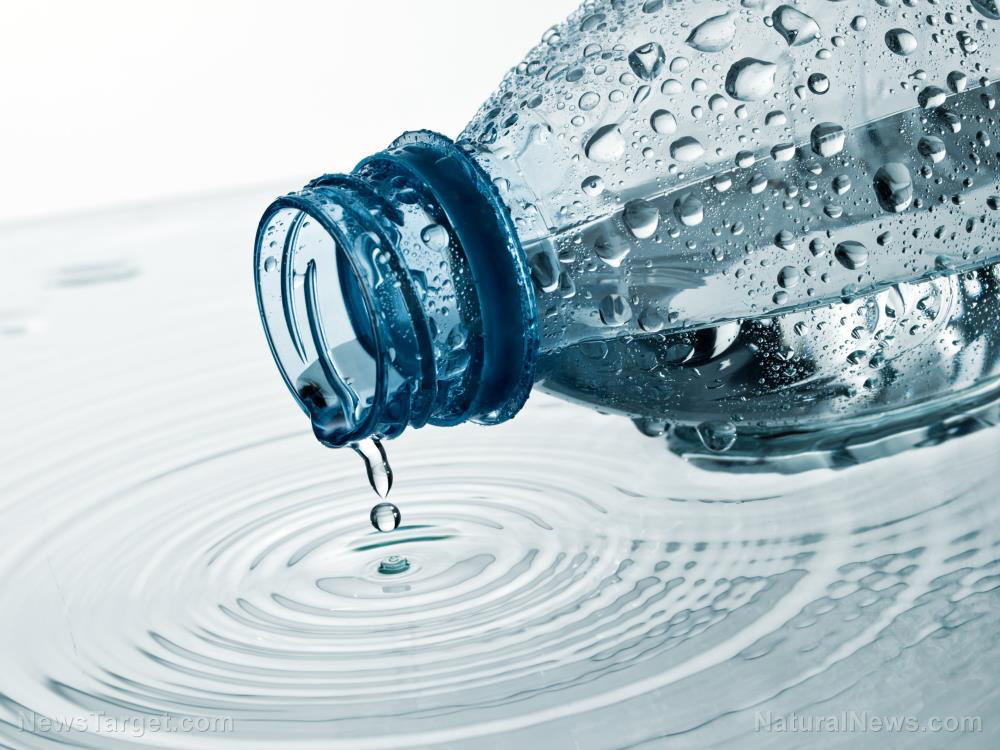
Here are some recommendations and invaluable advice shared by professional outdoor educators and survival experts on how to store emergency water in your vehicle.
Storage tips for when the weather is hot
Avoid water in plastic bottles. A study by researchers at the University of Florida and Nanjing University found that plastic water bottles left in a hot car for a week leaked significant amounts of harmful chemicals into the drinking water. Examples of these toxic chemicals include antimony, a known carcinogen, and BPA, which may cause serious health problems like cancer and hormone and metabolic disorders.
Use aluminum and stainless steel bottles. Metal containers won’t leach all sorts of nasty chemicals into your water, no matter how hot it gets. They are also quite durable should you drop them. The only downside is they can get really warm in hot conditions. (Related: Survival essentials: Tips for storing water in your car.)
Consider bagged water. Bagged water comes in convenient package sizes, don’t degrade or leak, are easy to store, have a long shelf life and are able to withstand extreme temperatures. However, bagged water is expensive.
Consider boxed water. You can buy 12-pack, 24-pack and 32-pack boxed water in recyclable packaging. Avoid storing boxed water under car seats or anywhere it can get crushed. Boxed water will fit nicely inside a cooler in a trunk storage bin.
Consider canned water. Some companies sell emergency water with a 50-year shelf life. This emergency water is packed in cans made of corrosion-resistant aluminum, which is perfect for long-term storage. These cans are designed to withstand conditions between 38-140 F, making them a good option for keeping in your car when the weather's hot. The main drawback of canned water is its price; but since it has such a long shelf life, you probably won’t have to replace it frequently.
Keep a cooler in your car. Even a cooler that’s not filled with ice can help insulate your emergency water supply from the heat. Soft coolers are generally more convenient for use in a car, but hard-sided models with extra insulation are usually more effective.
Storage tips for when the weather is cold
Avoid water in plastic bottles. In cold, freezing weather, plastic tends to become brittle, so opt for water stored in non-plastic containers.
Avoid canned water. Cans could burst when the weather is too cold, so don't store canned water in your car.
Don’t fill up your containers all the way. To avoid any problems with expanding water and cracked containers during winter months, be sure to leave a bit of empty space in your containers. As a general rule, leave at least ¼ or ? of the container empty to provide enough room for the water to expand.
Use a cooler. Generally, all commercial coolers use the same method of insulation – foam insulation between the inner and outer walls. Cheaper hard coolers use styrofoam while premium hard coolers use heavier but more effective polyurethane.
Aside from a cooler, there are other materials that you can use to insulate your emergency water supply from the cold, such as survival blankets, which are really good at trapping heat and can provide another layer of protection. You can wrap your emergency water containers in survival blankets before storing them in a cooler.
Where to store emergency water in your vehicle
Car cabin. When the weather is cold, you can prevent your emergency water from freezing if you store it in the cabin since you will probably turn on the car heater as you drive. That way, your water supply will get a blast of hot air, which can make a difference in the long run.
Storing emergency water in the cabin of your car also makes it more accessible, especially in times of need.
Trunk/hatchback. Storing emergency water in the trunk of your car can help you save space. During hot months, your emergency water supply will also stay a bit cooler in the trunk where it's protected from the sun.
Points to remember when storing water in your vehicle
Assuming your emergency water and the container you used were both clean at the time of storage, it should remain safe to drink for six months. That said, check your water containers at least every six months for any signs of leaking or deterioration. If you need to rotate out your supply, you can use the water you’re replacing to water your plants.
A three-day supply (more if you have room in your vehicle) is a good amount to stash in your car.
Your car emergency kit should include other means of getting potable/safe drinking water, such as a LifeStraw, iodine or purification tablets that can help purify water.
Consider purchasing quality hydration packs, or bladder packs, which are flexible reservoirs that can fit into your backpack and offer some protection from freezing and UV rays. Store 100-ounce hydration packs per person for emergencies.
You should also pack a camp stove because, despite your best efforts, your emergency water may still freeze in winter. You can use the stove to melt enough water for drinking in an emergency situation.
Watch the following video to learn more about emergency water for long-term vehicle storage.
This video is from the Daily Videos channel on Brighteon.com.
More related stories:
Here’s why you should NEVER reuse your plastic water bottles.
4 Tips to prevent emergency water from freezing.
Prepping 101: Emergency water storage for beginners.
Sources include:
Please contact us for more information.






















